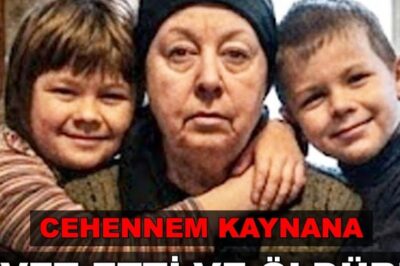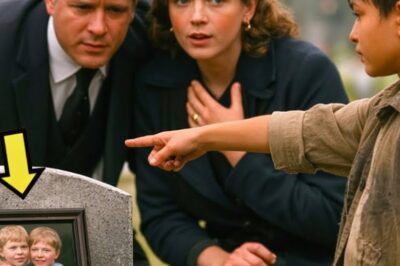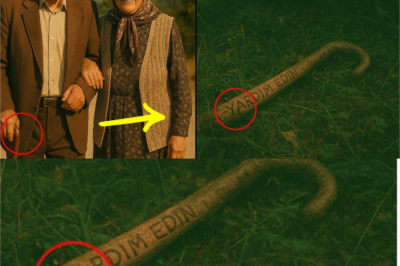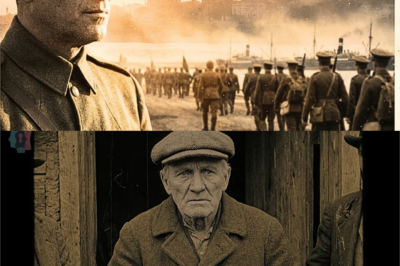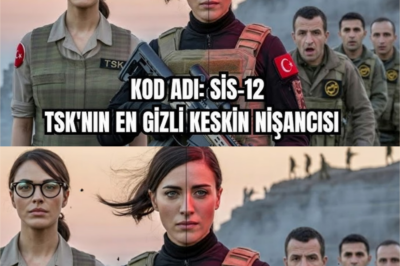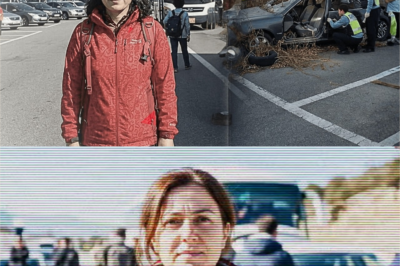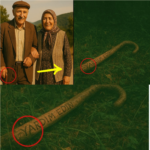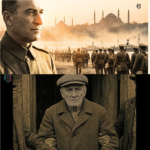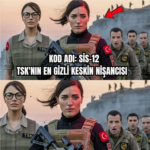4-month-old baby Yousef Al-Najjar suffers from severe malnutrition and a severe shortage of medicine and milk due to the blockade of Gaza.
.
.
.
“My Baby Is Wasting Away”: The Agony of Gaza’s Children Under Siege
Yousef Al-Najjar is only four months old, but his tiny body already bears the scars of a crisis he had no part in creating. His mother, exhausted and desperate, cradles him in her arms as the beeping of medical machines echoes through the hospital corridors in southern Gaza. His ribs protrude through his thin skin, and his eyes, once bright, now reflect only hunger and pain.
For Yousef and thousands of children like him, the blockade of Gaza is not just a political reality—it is a daily struggle for survival. Severe malnutrition, a critical shortage of medicine, and the near-total absence of baby formula have turned a humanitarian crisis into a nightmare for families across the strip.
A Mother’s Endless Vigil
“Since the moment I gave birth to him, I have been living in hospitals,” Yousef’s mother says, her voice breaking. “I spend three days, a week, then we go home, only to come back again.” She has become a fixture in the pediatric wards, watching helplessly as her baby’s health deteriorates.
Yousef’s condition is dire. He developed sepsis—a life-threatening blood infection—and had to receive blood transfusions. His body, already weakened by hunger, was ravaged by infections that spread rapidly. “He has no milk at all,” his mother explains. “There is no therapeutic milk available. The doctors tried to arrange for him to leave Gaza for treatment, but the border is closed. They say there is treatment outside, but here, there is nothing left. He only receives medicine for his convulsions. If the border stays closed, I might lose my son. He could slip away from my hands.”
Her voice trembles as she contemplates the possibility. “Maybe the other children will also die before our eyes. Every day, another child dies. Every day, a child is discharged from intensive care, but they are just skin and bones. Who would accept this for a cat, let alone a child?”
The Human Toll of Blockade
Gaza’s blockade, now in its 17th year, has crippled the territory’s health system. Hospitals are overwhelmed, and supplies of basic medicines and medical equipment have run out. The situation for infants is particularly dire: specialized formula, essential for malnourished and sick babies, is all but impossible to find.
Yousef’s mother recounts her frantic attempts to find milk. “I searched everywhere to get him a can of milk. For four months, I have been struggling in the hospitals with him. Here are his papers, his medical files. How long must we live like this? How many units of blood has he received already?”
Her exhaustion is palpable. “We are so tired. How much longer can this go on? Must all the children die before anyone cares? Do they want all the children in Palestine to perish?”
The Faces of Famine
Inside Gaza’s hospitals, the effects of malnutrition are everywhere. Children’s bodies waste away, their chests sunken, their limbs too thin to support their own weight. “His chest is all bones,” Yousef’s mother says, gently touching her son’s ribcage. “His skin hangs on his bones. I have never seen a child suffer like this in my life. Why is this happening to us?”
Doctors and nurses do what they can with what little they have. But as the blockade drags on, even the most basic supplies—antibiotics, painkillers, and infant formula—have disappeared from pharmacy shelves. The few shipments that do arrive are quickly depleted.

“Every day, mothers beg for milk for their babies,” says a nurse at one of Gaza’s main hospitals. “We have nothing left to give. We watch these children die, and there is nothing we can do.”
A Plea to the World
For Yousef’s mother, the sense of injustice is overwhelming. “What is happening to us is a crime,” she says, tears streaming down her face. “There are no treatments left in Gaza. Do they want us to sit and wait for our children to die? Or for us to die with them?”
She appeals to the world, her words a desperate plea for help. “We hope that someone, anyone, from the Arab countries, from the ministers abroad, will stand with us. Can’t you see what is happening? Mothers are begging just to feed their children.”
The blockade, she says, is not just a political tool—it is a weapon that targets the most vulnerable. “When my son was admitted to intensive care, the doctors told me, ‘Pray that he survives the night.’ There is no milk left. I went to the ends of the earth to find a can of milk for him.”
The Paperwork of Desperation
Her hands shake as she shows the stack of medical documents—referral forms, medical reports, and transfer requests. “Here are his papers. Here is his file. How long must we go on like this?” Each document is a testament to her relentless fight for her son’s life—a fight that, despite her best efforts, may end in tragedy.
“How long will this continue?” she asks, her voice raw with grief. “How many more units of blood will he need? How many more children must die?”
The Silent Suffering
The suffering is not limited to Yousef. Every day, mothers across Gaza face the same agonizing choices. “Every day, a child dies,” Yousef’s mother says. “Every day, another mother leaves the hospital empty-handed. Our children are dying in front of our eyes. Who will help us?”
The sense of abandonment is profound. “We are tired. We have nothing left. Must all the children die before anyone cares?”
The World Watches
As the crisis in Gaza deepens, the world’s attention has shifted elsewhere. But for families like Yousef’s, the suffering is relentless and inescapable. The blockade, intended as a tool of political pressure, has instead become a sentence of death for the territory’s most vulnerable.
“Is this our fate?” Yousef’s mother asks. “That our children should die for politics? That we should watch them waste away, powerless to save them?”
Her words echo the anguish of thousands of families across Gaza, trapped in a cycle of poverty, hunger, and despair.
The Cost of Inaction
International organizations have repeatedly warned of an impending humanitarian catastrophe in Gaza. The UN has described the blockade as “collective punishment,” and human rights groups have called for urgent action to allow food, medicine, and humanitarian aid into the territory.
But for now, the borders remain closed, and the shelves in Gaza’s pharmacies and supermarkets are empty. The cost of inaction is measured in the lives of children like Yousef—children who did nothing to deserve their fate.
A Mother’s Hope
Despite everything, Yousef’s mother clings to hope. “God willing, we will be saved,” she says. “God willing, someone will stand with us. God willing, my son will live.”
Her faith is all she has left. As she rocks her son in her arms, she whispers prayers for his survival, for the survival of all Gaza’s children.
The World Must Not Look Away
Yousef’s story is not unique. Across Gaza, thousands of children face the same fate—malnutrition, preventable diseases, and death from lack of medicine and food. Their mothers’ pleas are a cry for help that must not go unanswered.
The world must not look away. The blockade of Gaza is not just a political issue—it is a humanitarian emergency. Every day that passes without action is another day that children like Yousef slip closer to death.
A Call for Compassion
As Yousef’s mother says, “We just want someone to help us feed our children. Is that too much to ask?”
Her question hangs in the air, a challenge to the conscience of the world. Will we answer her plea? Or will we allow the children of Gaza to fade away in silence, victims of a crisis not of their making?
play video:
News
Gelin yılbaşında çocuklarıyla geldi. Eve kimse dönmedi…
Gelin yılbaşında çocuklarıyla geldi. Eve kimse dönmedi… . . . Gelin Yılbaşında Çocuklarıyla Geldi. Eve Kimse Dönmedi… Bölüm 1: Stanitsa’ya…
BU İKİZLER YETİMHANEDE, EFENDIM… DEDİ FAKİR ÇOCUK VE MİLYONER DONDU KALDI
BU İKİZLER YETİMHANEDE, EFENDIM… DEDİ FAKİR ÇOCUK VE MİLYONER DONDU KALDI . . . Bu İkizler Yetimhanede, Efendim… Dedi Fakir…
1980’de yaşlı çift kayboldu — 39 yıl sonra çoban bastonda şok mesaj buldu ama neredelerdi?
1980’de yaşlı çift kayboldu — 39 yıl sonra çoban bastonda şok mesaj buldu ama neredelerdi? . . . 1980’de Yaşlı…
İngiliz Komutan ‘Türkler GELMEZ’ Dedi — 3 Gün Sonra 25.000 Asker Kaçmak Zorunda Kaldı
İngiliz Komutan ‘Türkler GELMEZ’ Dedi — 3 Gün Sonra 25.000 Asker Kaçmak Zorunda Kaldı . . . İngiliz Komutan ‘Türkler…
JÖH Komandoları Onu ‘Bilgisayar Kızı’ Sandı – Kod Adını Öğrenince Dondu Kaldılar!
JÖH Komandoları Onu ‘Bilgisayar Kızı’ Sandı – Kod Adını Öğrenince Dondu Kaldılar! . . . JÖH Komandoları Onu ‘Bilgisayar Kızı’…
2019’da 40 yaşlarında bir kadın tırmanış deyip Ağrı Dağı’nda kayboldu;1yıl sonra gerçek ortaya çıktı
2019’da 40 yaşlarında bir kadın tırmanış deyip Ağrı Dağı’nda kayboldu;1yıl sonra gerçek ortaya çıktı . . . Zehra’nın Yolculuğu: Kaybolan…
End of content
No more pages to load

.jfif-fa10f6c2-b413-481e-9271-9c798843037c.jfif)
